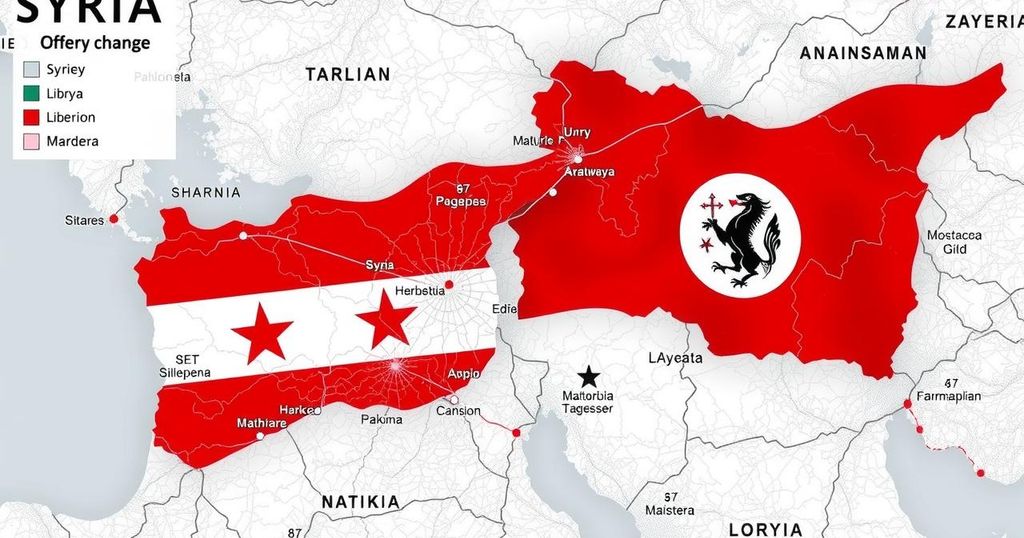The downfall of Bashar al-Assad in Syria poses strategic challenges for Russia and threatens to aggravate the Libyan conflict. In response, Russia is shifting its military resources to Libya, raising concerns about intensifying the ongoing political crisis. This reallocation could undermine peace efforts in Libya and complicate Russia’s ability to project power across Africa.
The recent fall of Syrian President Bashar al-Assad, who had been supported by Russia, presents significant challenges for Libya. Following this regime collapse, Russia is attempting to negotiate its military presence with the new Syrian authorities while simultaneously shifting military resources to Libya. This move is seen as a strategy to compensate for the loss of operational bases in Syria, which have been crucial for Russia’s engagements across Africa, including its operations in Mali, Niger, Burkina Faso, and the Central African Republic.
Russia’s augmentation of military assets in Libya, coupled with the backing of General Khalifa Haftar’s forces, raises concerns about exacerbating the ongoing conflict in the region. Meanwhile, Libya’s Prime Minister Abdul Hamid Dabaiba has expressed strong opposition to Russia’s increased military footprint, emphasizing that such actions threaten to convert Libya into a battleground for international rivalries, complicating internal reconciliation efforts. Furthermore, the shifting dynamics question Russia’s ability to maintain its support across Africa, creating an atmosphere of uncertainty concerning its military strategies in both Syria and Libya.
The geopolitical landscape has shifted significantly following the downfall of Bashar al-Assad in Syria, a figure whose regime served as a critical ally for Russia in the eastern Mediterranean. Subsequently, Moscow is not only attempting to retain a foothold in Syria through negotiations with new authorities but is also diverting military resources to Libya, an essential hub for its African operations. For years, Russia’s military presence in Libya has supported the eastern government led by General Khalifa Haftar, intensifying a divided conflict with the UN-backed government in Tripoli. This new strategy appears to stem from a need to stabilize Russia’s influence in Africa post-Assad.
The situation in Libya post-Assad’s downfall reflects a broader systemic risk for regional stability. As Russia reallocates military resources to fortify its position in Libya, its actions jeopardize peace efforts amidst a civil conflict that has defined Libya for years. Prime Minister Dabaiba’s concerns amplify the potential for increased tensions stemming from foreign military involvement. Overall, the geopolitical shift indicates a troubling trajectory for both Libya and Russian foreign policy in Africa.
Original Source: issafrica.org






